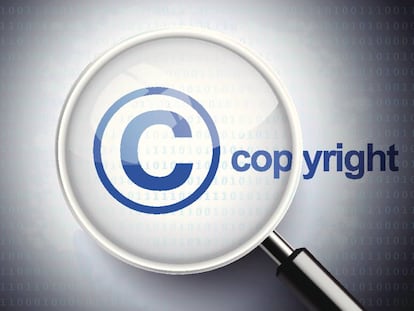A digital agreement
The media and technology companies need to move forward together

The digital revolution, which affects all aspects of life, is having a particular impact on the production and distribution of news, especially print media, putting its sustainability into question. Paradoxically, this is happening at a time when the increase in “fake news” and so-called “alternative facts” makes it more important than ever for the public to have access to a free, independent, professional press able to provide quality, factual, and balanced information.
Despite the nature of the challenge we face, at EL PAÍS we’re optimistic. Thanks to the new digital technologies, we are able to reach millions of people we would never have been able to using the old, traditional print methods, while at the same time offering our readers more and better stories in real time and in more attractive formats. But two things are necessary for the press to complete its digital transformation and create a sustainable business model: the right regulatory framework and a strategic alliance with the leading technology companies. Both tasks are at this time being undertaken, and it is vital that they come to a satisfactory conclusion.
We need to be flexibile if we are to adapt to an environment in a state of constant flux
Regarding the former, the European Commission has recently begun the process of renewing the rules that regulate the distribution of digital information, rules dating back to 2001 and that are obsolete, given that neither Facebook or Twitter existed at that time. The Proposal for a Directive on copyright in the Digital Single Market in the European Union includes eliminating barriers to improve access and distribution of content within the EU. The proposal has aspects that deserve to be evaluated, such as the importance given to intellectual copyright in our industry, as well as its interest in helping the media in its digital transformation. There are also clearly positive elements, such as the measures oriented toward facilitating transparency and in balancing the relationship between content creators and the people or entities they cede their rights to.
But anybody who thinks that those rights can be turned into a fortress from which to impose obligatory and inalienable fees is mistaken. This is a model that has been shown to fail in Germany, in 2013, and in Spain in 2014. Then, efforts to impose an obligatory fee on Google for the use of links to news stories provoked a major fall in web traffic for the Axel Springer group and the closure of Google News in Spain.
Despite the nature of the challenge we face, at EL PAÍS we are optimistic
Past experience and the present reality show that a way forward based on cooperation between the media and technology companies is required, rather than through confrontation. This is a way forward that newspapers such as EL PAÍS have already begun with Google, through projects such as the Digital News Initiative and AMP (Accelerated Mobile Pages), as well as with Facebook, through its Journalism Project. These initiatives show that technology companies increasingly understand the need and importance of an independent, free press, and concomitantly their responsibility when it comes to contributing to the distribution of factual and high-quality news.
The media finds itself at a crucial moment in the construction of our presence in the digital world at a global level. We need freedom of action and flexibility if we are to adapt to an environment in a state of constant flux. This requires regulation that will help us to grow in terms of readers and income, not one that suffocates the process of digital transformation. The entire sector will benefit if agreement can be the basis for the future of the digital information ecosystem.
English version by Nick Lyne.
Tu suscripción se está usando en otro dispositivo
¿Quieres añadir otro usuario a tu suscripción?
Si continúas leyendo en este dispositivo, no se podrá leer en el otro.
FlechaTu suscripción se está usando en otro dispositivo y solo puedes acceder a EL PAÍS desde un dispositivo a la vez.
Si quieres compartir tu cuenta, cambia tu suscripción a la modalidad Premium, así podrás añadir otro usuario. Cada uno accederá con su propia cuenta de email, lo que os permitirá personalizar vuestra experiencia en EL PAÍS.
¿Tienes una suscripción de empresa? Accede aquí para contratar más cuentas.
En el caso de no saber quién está usando tu cuenta, te recomendamos cambiar tu contraseña aquí.
Si decides continuar compartiendo tu cuenta, este mensaje se mostrará en tu dispositivo y en el de la otra persona que está usando tu cuenta de forma indefinida, afectando a tu experiencia de lectura. Puedes consultar aquí los términos y condiciones de la suscripción digital.








































